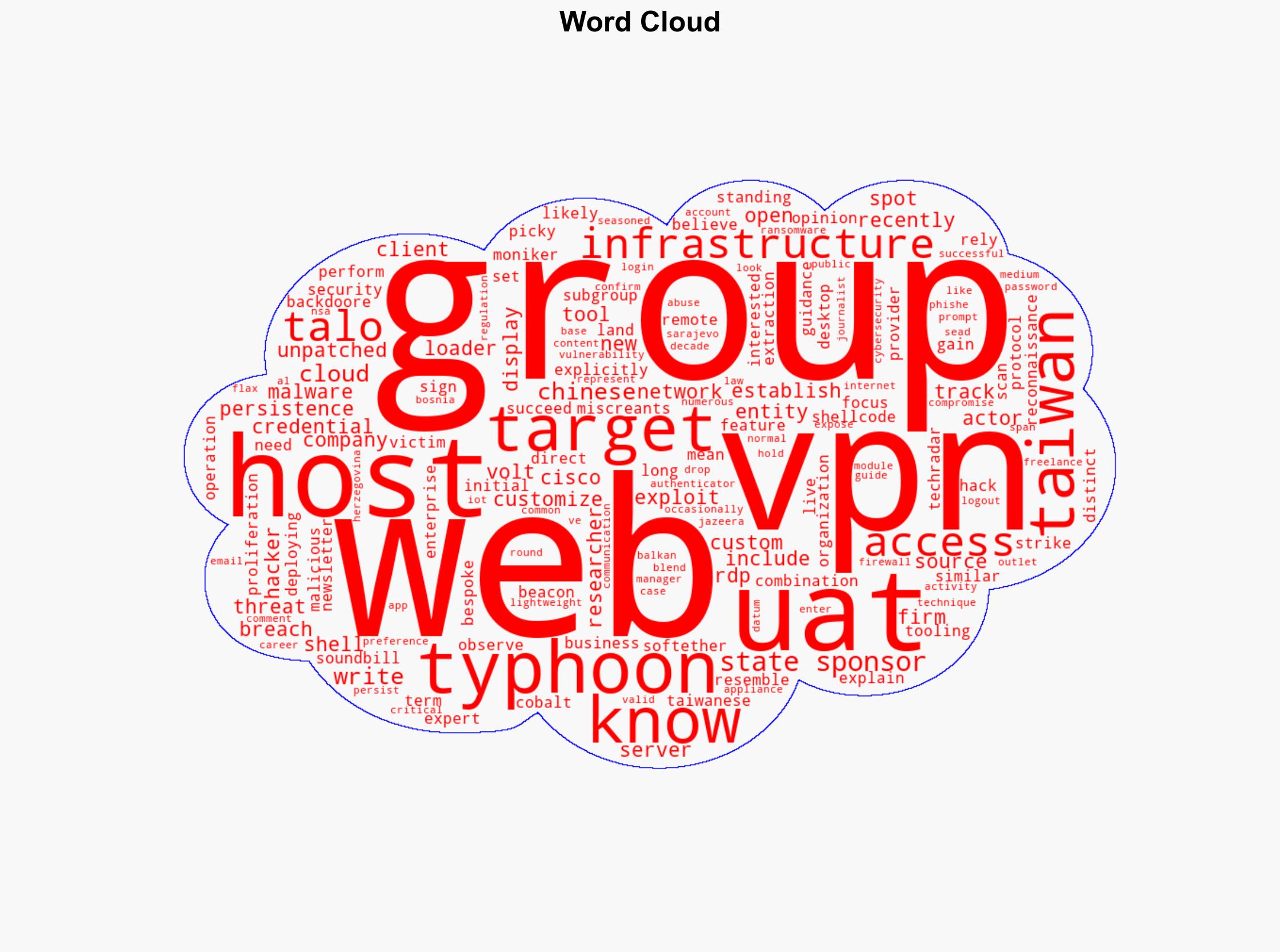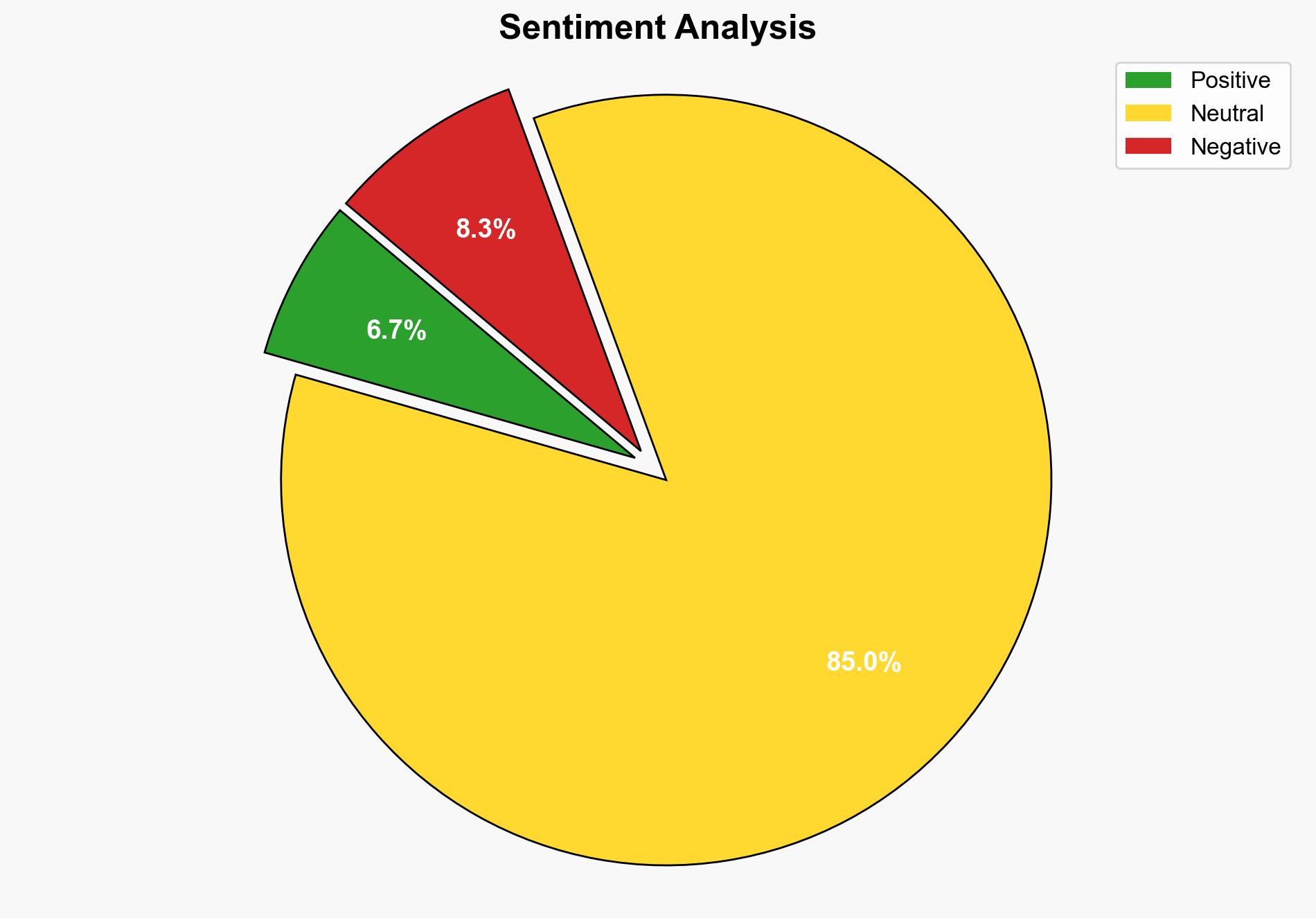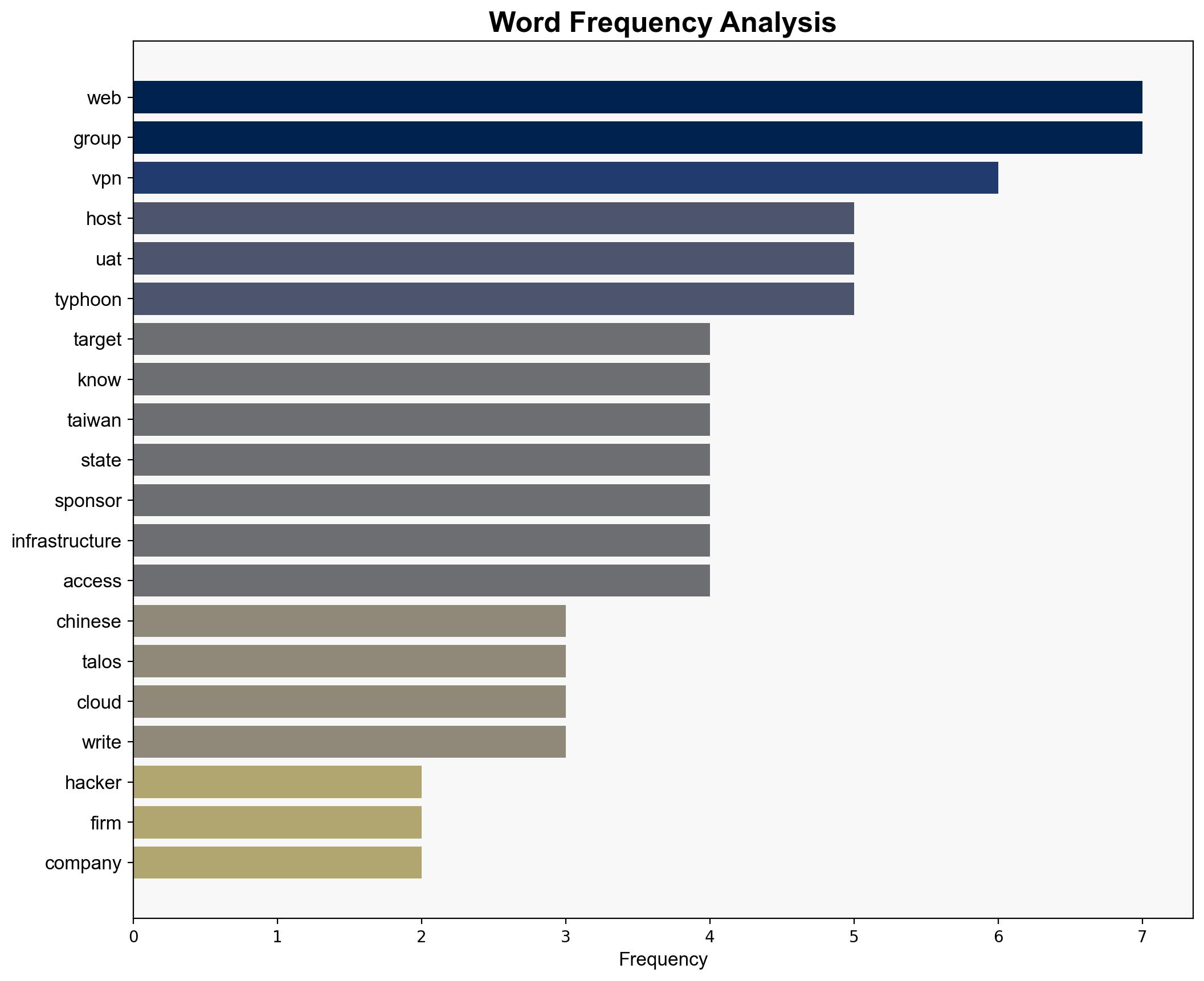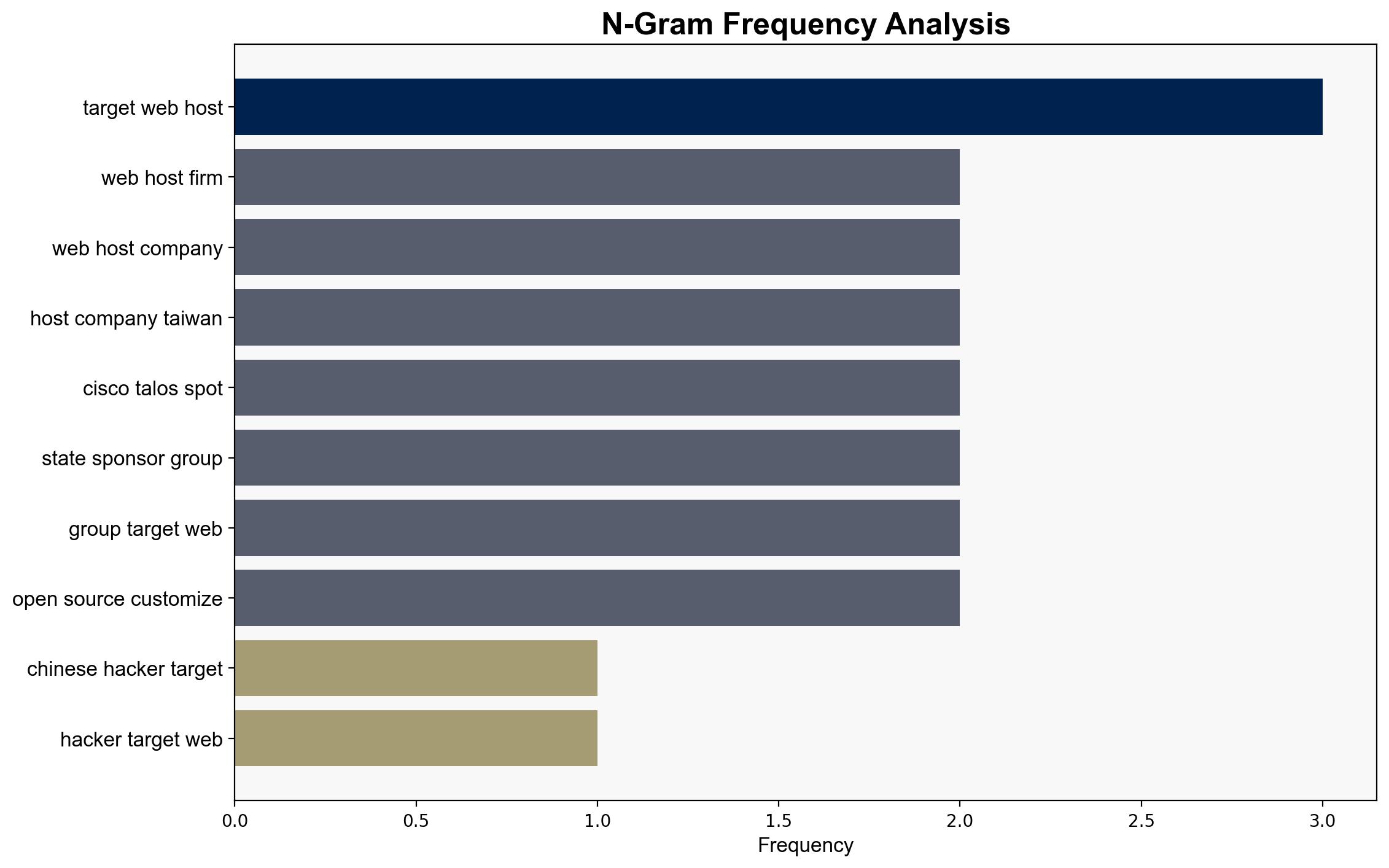Chinese hackers are targeting web hosting firms – here’s what we know – TechRadar
Published on: 2025-08-19
Intelligence Report: Chinese hackers are targeting web hosting firms – here’s what we know – TechRadar
1. BLUF (Bottom Line Up Front)
The most supported hypothesis is that a Chinese state-sponsored group, identified as UAT, is targeting Taiwanese web hosting firms to establish long-term persistence within their infrastructure. This activity aligns with state-level cyber espionage objectives. Confidence level: Moderate. Recommended action: Enhance cybersecurity measures for web hosting firms, focusing on patch management and network monitoring.
2. Competing Hypotheses
1. **Hypothesis A**: UAT is a Chinese state-sponsored group targeting Taiwanese web hosting firms to establish long-term persistence for cyber espionage purposes.
– **Supporting Evidence**: The use of sophisticated tools like Cobalt Strike, custom shellcode loaders, and techniques resembling those of known state-sponsored groups such as Typhoon.
– **SAT Applied**: ACH 2.0 suggests this hypothesis is consistent with observed patterns of state-sponsored cyber activities.
2. **Hypothesis B**: UAT is an independent cybercriminal group using state-level tactics to exploit Taiwanese web hosting firms for financial gain.
– **Supporting Evidence**: The use of open-source tools and the potential for financial motivation through ransomware or data theft.
– **SAT Applied**: Bayesian Scenario Modeling indicates this hypothesis is less likely given the strategic focus on long-term persistence rather than immediate financial gain.
3. Key Assumptions and Red Flags
– **Assumptions**: Hypothesis A assumes state sponsorship based on tool sophistication and target selection. Hypothesis B assumes financial motivation despite the lack of immediate financial gain evidence.
– **Red Flags**: Lack of direct attribution to Chinese state entities; reliance on tool similarity for attribution.
– **Blind Spots**: Potential for misattribution due to overlapping tactics used by both state and non-state actors.
4. Implications and Strategic Risks
– **Patterns**: The focus on Taiwanese infrastructure suggests a geopolitical motive, potentially escalating regional tensions.
– **Cascading Threats**: Compromised web hosting firms could lead to broader access to sensitive data and infrastructure.
– **Economic Risks**: Potential disruption of services and loss of trust in Taiwanese web hosting capabilities.
– **Geopolitical Risks**: Increased cyber tensions between China and Taiwan, potentially drawing in international stakeholders.
5. Recommendations and Outlook
- Enhance patch management and vulnerability scanning for web hosting firms.
- Implement advanced network monitoring to detect and respond to persistent threats.
- Best-case scenario: Strengthened cybersecurity measures deter future attacks.
- Worst-case scenario: Escalation of cyber activities leads to broader geopolitical tensions.
- Most likely scenario: Continued low-level cyber espionage activities with periodic disruptions.
6. Key Individuals and Entities
– **Cisco Talos**: Security research team identifying and tracking the UAT group.
– **UAT Group**: The threat actor involved in targeting Taiwanese web hosting firms.
7. Thematic Tags
national security threats, cybersecurity, counter-terrorism, regional focus





